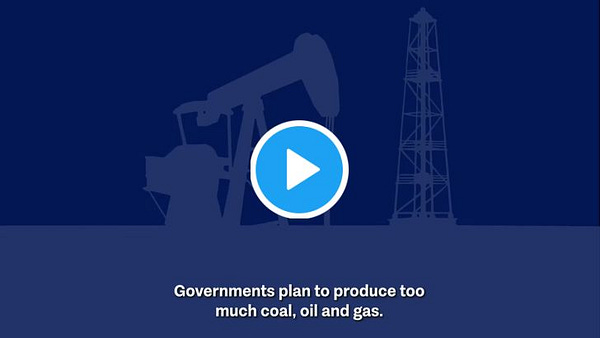Have We Declared War On Nature?
UN secretary general says humanity is waging war on nature
Humanity is facing a new war, unprecedented in history, the secretary general of the UN has warned, which is in danger of destroying our future before we have fully understood the risk.
“Humanity is waging war on nature. This is suicidal. Nature always strikes back – and it is already doing so with growing force and fury. Biodiversity is collapsing. One million species are at risk of extinction. Ecosystems are disappearing before our eyes … Human activities are at the root of our descent toward chaos. But that means human action can help to solve it.” Anthony Guterres, UN Secretary General.
One of the Letts Group’s projects, a wildlife park with environmental art, has a conceptual environmental art installation called ‘Man Versus Nature’.
The UN lists the main human-inflicted wounds on the natural world: the spread of deserts; wetlands lost; forests cut down; oceans overfished and choked with plastic; dying coral reefs; air pollution killing 9 million people a year, more than the current pandemic; and the fact that 75% of new and emerging human infectious diseases have, like Covid-19, come from animals.


Air pollution alone should have us acting. Today it is the fourth biggest killer of people. We should marshall ourselves effectively around its origins including diesel vehicles, polluting chemical and energy plants, burning wood and the burning of tyres and breaks while driving cars and lorries. We have marshalled powerful collective action to fight Covid-19. Now we should focus it on emissions and pollution as well.
We need a major rallying call in advance of the global summit of international leaders, called COP26, which meets in Glasgow at the end of next year. Guterres is trying to force countries to finalise their plans to achieve net zero emissions by 2050 well in advance of the meeting. These plans, combined, need to ensure that we hold global temperatures to well below 2C above pre-industrial levels. Much above this and we could genuinely put not just the planet, but humanity at risk.
As we start the process of getting on top of the Coronavirus pandemic it is vital that we invest in building back greener and get to grips with the world's bigger problem. The one that could genuinely wipe us out.
According to the annual Lancet Countdown on Health and Climate Change, global emissions must fall by 7.6% each year from now until 2030 to keep temperature rises below the 1.5C ceiling that scientists say is necessary to avoid disastrous consequences. But, if we wait another three or four years that becomes 15.4% which is pretty much impossible. Time is truly running out.
Positive changes have been made - mostly around the increasing shift towards renewable energy. But this is not enough. This will help reduce new emissions but does not deal with nature's bigger problem - how we absorb the massive existing bank of greenhouse gases held in our atmosphere. To achieve this we must repair nature so that it can help us win the war against climate change and stop the feuding between humanity and nature.
Nature restoration is the only proven way to absorb emissions at scale and put them safely back into our land and seas. The soil is the most vital tool that we have. The majority of annual emissions could be absorbed by the soil if we were to restore between 15% and 30% of our land back to nature. This is achievable. But it will require a grand private/public partnership to achieve it.
Guterres also stresses the importance of companies achieving net zero across the board and around the world. Many want to - most don't know how to do it. The Letts Group have produced simple, easy to understand 10 step climate plans for companies, individuals and regional government. Anyone can take these plans and make the difference.


There is much that business leaders can be doing to shape their business practices, products and supply chains for the green economy. Natural capital approaches will soon dictate it from an accounting perspective while investors will push for it from a governance perspective. Your government will regulate for it and penalise poor performers. There are growing calls for government to start taxing polluters.
We will all need to develop effective messaging to help solve the climate crisis and to explain our approaches. One of the lessons from Covid-19 was the vital importance of simple public messaging. With climate change people genuinely want to help solve the crisis. Research shows climate change at the top of most polls while both young and old are engaged.
We will need climate versions of ‘hands, face, space’. It could be something like ‘rewild your space, eat less meat, switch to electric’. Visuals will be vital.
We all feel like we have climbed an almost impossible mountain trying to cope with Covid. As we reach its summit, thanks to vaccines, we can start to see the horizon beyond. We must now steel ourselves for the bigger mountain ahead: tacking climate change.
We have learned much about pandemic and crisis management this year. Mostly we have seen that the countries and businesses that reacted the fastest and went in the hardest - adapting to the new circumstances while adopting pandemic management approaches came out best. Dealing with climate change will be no different.
Subscribe to Surviving to join the conversation via comments, Q&A sessions and more - its free! And follow us on twitter @LettsGroup.



